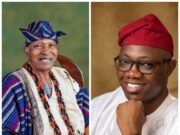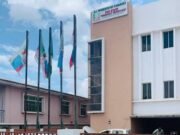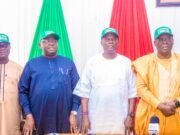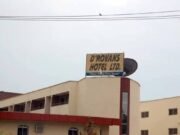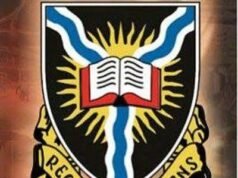Today, Oloye Lekan Alabi, a veteran journalist, author, public relations guru and public relations guru clocks 70.
In this report, OYOINSIGHT.COM’s Adebayo Abdulrahman highlights the story of a man who has defied all odds.
In the beginning…there was activism and journalism
Born in Ibadan on the 27th of October, 1950 to the late Pa AbdulRaheem Oladosu Alabi and Mrs . Mopelola, Oloye Lekan Alabi was borned into a family that prepared him for life, activism and journalism.
His paternal grandmother, Mama Asmau Odunola Alabi was the Women Leader of NCNC ( National Council of Nigeria Citizens ) during the days of late and great – Adegoke Adelabu Penkelemesi .
In a world filled with activism, Oloye Lekan Alabi’s closest companion were copies of the Daily Times newspaper and the transistor radio set that his father bought for him in 1963 after emerging the Senior Prefect of my primary school. The Ekefa Olubadan has never for once downplayed the influence of his background on his career.
Hear him: “My father was working with a British company called Rowntree Nigeria Limited , which was making chocolate . From there , he joined the Daily Times as a junior staff in the Marketing Department , distributing the newspaper and products of the Daily Times of Nigeria . His boss in Ibadan was the doyen of journalism in Africa , Alhaji Ismael Babatunde Jose, who was succeeded by Chief Laban Omowale Namme.
“He was a Cameroonian but when Nigeria was about to get independence , there was plebiscite where Southern Cameroun said they would not join Nigeria . My father would bring a copy of Daily Times home everyday . When we had important functions, his bosses would honour him by coming to our house The first car that my father bought as a start of his transport business was sold to him by the Daily Times.
“So, I grew up reading copies of the Daily Times . The thing that appealed to me most as I started to understand English was the byline of the great reporter and columnist , Alhaji Alade Odunewu just back from Mecca , Saudi Arabia, S . T. Ola just back from London , the UK. I thought what a great job that would take me to the world . Later , as I was reading , I loved their prose, the language.
At 17, He Wrote A Military Head Of State
Before going on to have a career that will see him live in the corridors of power, in 1967, 17-year-old Lekan Alabi wrote a letter to the Head of States, Yakubu Gowon demanding the release of foremost playwright and Nobel laureate, Wole Soyinka.
This singular action was so daring that during the celebration of his 50 activism anniversary, the late Dr. Areoye Oyebola had to ask twice: what gave you the audacity?
In a recent interview, the Ibadan chief opened up on what motivated him to undertake such a courageous move.
“That was in 1967 , when I was a 17 -year – old form three student of African Church Grammar School , Apata Ganga, Ibadan . Wole Soyinka was my hero, because I applied to read English Language at the then University of Ife. Thats another story. But this is more of what you can call justice. Remember that my paternal grandmother, Mama Asma u Odunola Alabi was Women Leader of NCNC (National Council of Nigeria Citizens) under Adegoke Adelabu . So, I grew up in the midst of activism. My association with the Daily Times and the transistor radio set that my father bought for me in 1963 when I became the Senior Prefect of my primary school. All these added to what you can call my emancipation and enlightenment.
“So, there was this issue of the Daily Times one day, front- page headline which read: Wole Soyinka Will Remain In Prison As Long As War Lasts Gowon. The second day I went to pick the copy again and I read it. I asked myself was it the way to send people to prison without trial? What was his offence? They said he went to Enugu at the risk of his life to meet with the then embattled Military Governor of the Eastern Region, Lt . Colonel Chukwuemeka Odumegwu Ojukwu. I thought it was most unfair. I , therefore , wrote three letters One to the Head of State , Yakubu Gowon . I wrote : Your Excellency , I am Lekan Alabi, student of so so school . I read yesterday s copy of the Daily Times where you were quoted as saying that Mr . Wole Soyinka will remain in prison as long as war lasts . In paragraph three, I wrote : I don t think this is fair . So , I am asking for two favours sir , please , release Mr . Soyinka or take him to court . I signed and posted it at our area post office , the Mapo Post Office , Oja ba , Ibadan . The second letter was written to Mr . Wole Soyinka . In the second paragraph , I wrote : I have appealed on your behalf to the Head of State since I read yesterday that you would remain in prison as long as the war last and I have told him that this is not fair . Please , remain steadfast in your cause which we follow and believe that you will not die in prison . I signed. The third letter was written to the Editor , Daily Times , Kakawa Street , Lagos . In its second paragraph , I wrote : I read your newspaper report of yesterday where the Head of State said Mr . Wole Soyinka will remain in prison as long as the war lasts .
“Please note , I have written to the Head of State on behalf of Mr . Soyinka and I have also written to Mr . Soyinka and given him my solidarity . I signed and posted it. Nigeria used to run on standard. The office of the Head of State acknowledged my letter . Two years after , that is , in 1969 after his release , Prof . Wole Soyinka now wrote me formally , thanking me for my support. Let me quote his first paragraph : The letter , among others, was handed over to me on my release . The second paragraph read : Kindly see me in my office , School of Drama . They now call it Theatre Arts Department in University of Ibadan and I went to visit him.
A Veteran Journalist who served four Governors
Even though he started taking correspondence courses as a form three student at Anglican Church Grammar School , Apata Ganga, Ibadan, he ensured he studied journalism at the famous College of Journalism , Fleet Street London , the UK.
Before going to the United Kingdom, he worked as a teacher at Saint John s Anglican Primary School , Akinajo. The story of his switch from the classroom to the newsroom is another aspect of his career that entails how dedicated he is to the job.
“From Akinajo, I joined Onibonoje Press Limited , Felele , Ibadan as the first editorial assistant . It was just what we could call destiny , because the press advertised for Accounts Clerks but I was very poor in Mathematics in school . But I said , since I wanted to work in the media and this was a printing press. Even if it didn t publish newspapers or magazines , going into where they published books , at least , I would have an inclination to what they called press and printing. Onibonoje was the most famous educational printing company in West Africa . So , we went for the examination and the interview as Account Clerks . But the Chairman of the company , Baba Gabriel Onibonoje , at about 4 . 35 p. m . called us out and announced the result. He said anyone whose name was called should stand at one side . He called the last one and faced the rest of us and thanked us for our interest in the company . He told those who didn t succeed but still interested in working with the company to apply when next the company advertised for vacancies .
As we were about to leave he said : Wait , who among you is Mr . Lekan Alabi? I raised up my hand and he asked me to stand apart . He told me that I came first in the overall test , written and oral, but my Mathematics was very poor . He added that since they were looking for account clerks , they didn t see how I could fit . He however said they had decided to appoint me as the first Editorial Assistant to the company as a result of my proficiency in English Language . So , that was how I got the job.
“From Onibonoje , the Sketch Publishing Company Limited now advertised for readers /writers / reporters Grade 11 . I applied formally and the examination and the interview was conducted by the Western State Ministry of Establishment in conjunction with the Management of the Sketch and only two us were selected . My humble self and Baba Ojo . But he changed his name to Morounkeji Goke. I worked there from 1974 to 1978 . It was in between that I sponsored myself to London for my training . After the training , I returned to Sketch.
“I left when they played politics about car loan , which was N3 , 600 for Beetle . Mr . Yemi Farounbi ( now Dr . Farounbi ) who was then the General Manager of NTV , Ibadan , read a report I wrote on the post office and its slackness . He , therefore , sent for me . He asked the question what are you doing in Sketch with your background and freshness from the UK? You re supposed to be here . Lo and behold , I applied . I was interviewed and taken. Even though, in 1972 , I had applied to the same WNTV/ WNBS ( Western Nigeria Television / Western Nigeria Broadcasting Service ) as it was then , and the process then was that they would shortlist and send to the WAEC Office , Yaba , Lagos . The Test Development and Research Organisation of WAEC conducted the examination. If you passed the examination, they would send your name back to the Television House, Ibadan , for auditioning. I came first but they didn t take me . They said they needed two female programme assistants at that time . But eventually , I joined what they call now NTA ( Nigerian Television Authority ) , Ibadan in 1978 . I spent four years there.
“However, in 1982, he left NTA under controversial circumstances amd moved to the defunct Television Service of Oyo State where he worked before working as the Chief Press Secretary to four governors of Oyo State.”



